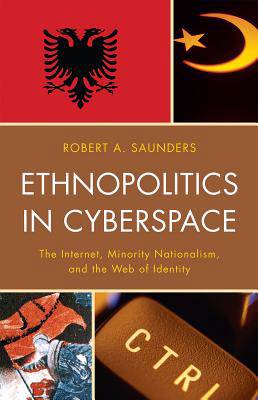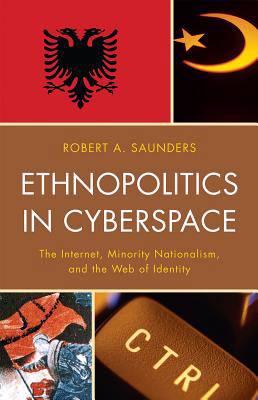
- Retrait gratuit dans votre magasin Club
- 7.000.000 titres dans notre catalogue
- Payer en toute sécurité
- Toujours un magasin près de chez vous
- Retrait gratuit dans votre magasin Club
- 7.000.0000 titres dans notre catalogue
- Payer en toute sécurité
- Toujours un magasin près de chez vous
Ethnopolitics in Cyberspace
The Internet, Minority Nationalism, and the Web of Identity
Robert A Saunders
Livre broché | Anglais
80,95 €
+ 161 points
Format
Description
Ethnopolitics in Cyberspace examines the central role of the Internet in shaping national identity among stateless nations and national minorities in the twenty-first century. By creating new spaces for political discourse, alternative avenues for cultural production, and novel means of social organization, the author argues that the Web is remaking what it means to be part of nation.
Spécifications
Parties prenantes
- Auteur(s) :
- Editeur:
Contenu
- Nombre de pages :
- 232
- Langue:
- Anglais
Caractéristiques
- EAN:
- 9780739141953
- Date de parution :
- 03-02-17
- Format:
- Livre broché
- Format numérique:
- Trade paperback (VS)
- Dimensions :
- 152 mm x 229 mm
- Poids :
- 317 g

Les avis
Nous publions uniquement les avis qui respectent les conditions requises. Consultez nos conditions pour les avis.






